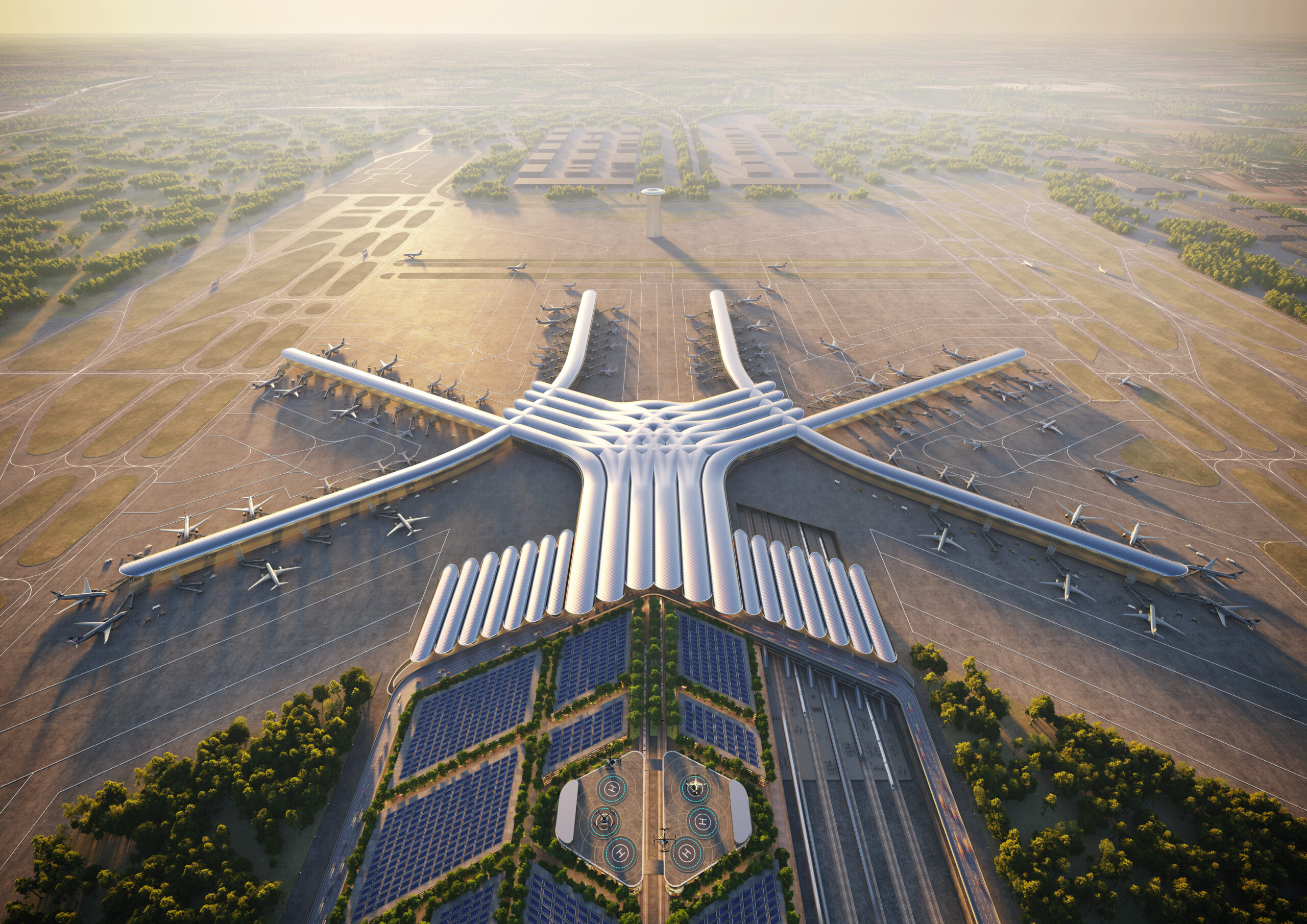
Centralny Port Komunikacyjny (CPK), the central communication port of Poland, is currently spearheading one of the most significant and eagerly anticipated transport investments in Europe. The ambitious project aims to construct a multimodal transport and interchange hub that integrates air, rail, and road transport in the region. As construction progresses, CPK is reaching milestones according to its ambitious schedule.
The CPK project encompasses the construction of one of the largest airports and transport systems not only in Europe but in the world. The airport will cover 1,000 hectares of land acquired under the Voluntary Acquisition Programme (PDN). The selection of a financial partner for the airport part is in a decisive phase.
President Andrzej Duda emphasizes the importance of CPK as one of Poland’s most crucial investments in the 21st century. He draws parallels with the historical significance of Gdynia, a port city and shipyard, highlighting the need for continuous progress and development.
The project, led by CPK, is not merely a national initiative; it’s a key undertaking for the entirety of Europe. Marcin Horala, Deputy Minister of Funds and Regional Policy and government plenipotentiary for CPK, emphasizes that CPK’s successful implementation is pivotal in transforming European transport and elevating mobility standards on the continent.
Key achievements in the project include the conceptual design by Foster+Partners, a renowned British consortium known for designing airports globally. The environmental decision with immediate enforceability and the General Plan have been approved, setting the stage for the construction phase.
CPK’s Master Architect has designed the terminal and main railway station, with the first phase of the airport, featuring two runways and infrastructure for up to 40 million passengers, set to be commissioned in 2028. Despite the ambitious timeline, CPK aims to complete the project 2.5 times faster than comparable endeavors.
The rail component of CPK involves the construction of approximately 2,000 km of new railway lines, including high-speed rail (HSR) lines. The project aligns with EU objectives, and the European Commission has already granted CPK over PLN 400 million from the Connecting Europe Facility (CEF).
To streamline the investment process, the Government Plenipotentiary for CPK contributed shares of the Polish Airports (PPL) company to CPK, creating the CPK Group. This group, now dominant in the European region, will coordinate and obtain financing for investment tasks related to the new transfer hub.
The selection of a strategic partner for the construction and management of the CPK airport is in its final stage. Notably, the French-American Vinci Group and South Korea’s Incheon Airport have expressed interest, showcasing the project’s international appeal.
CPK’s vision extends beyond being a transportation hub; it aims to become a strategic infrastructure investment that provides 180 million European citizens access to a modern integrated transport system. The project is expected to enhance economic development, attract foreign investment, and increase regional security by bolstering the resilience and defense capabilities of European countries. The CPK project stands as a testament to Poland’s commitment to shaping the future of European transport.
Related articles
- SEO Powered Content & PR Distribution. Get Amplified Today.
- PlatoData.Network Vertical Generative Ai. Empower Yourself. Access Here.
- PlatoAiStream. Web3 Intelligence. Knowledge Amplified. Access Here.
- PlatoESG. Carbon, CleanTech, Energy, Environment, Solar, Waste Management. Access Here.
- PlatoHealth. Biotech and Clinical Trials Intelligence. Access Here.
- Source: https://www.aviation24.be/airports/centralny-port-komunikacyjny-airport-cpk/transforming-european-transport-with-ambitious-plans/
- :has
- :is
- :not
- $UP
- 000
- 1
- 180
- 2028
- 21st
- 40
- 400
- a
- access
- According
- achievements
- acquired
- acquisition
- aims
- AIR
- airport
- Airports
- Aligns
- already
- ambitious
- and
- and infrastructure
- Anticipated
- appeal
- approved
- approximately
- articles
- AS
- attract
- BE
- become
- been
- being
- Beyond
- British
- but
- by
- capabilities
- central
- Century
- Citizens
- City
- commission
- commitment
- Communication
- company
- comparable
- complete
- component
- conceptual
- Connecting
- consortium
- construct
- construction
- continent
- continuous
- contributed
- coordinate
- countries
- cover
- Creating
- crucial
- Currently
- decision
- decisive
- Defense
- deputy
- Design
- designed
- designing
- Despite
- Development
- dominant
- draws
- eagerly
- Economic
- Economic Development
- elevating
- emphasizes
- encompasses
- endeavors
- enhance
- entirety
- environmental
- EU
- Europe
- European
- european commission
- European Countries
- expected
- expressed
- extends
- Facility
- faster
- Featuring
- final
- financial
- financing
- First
- For
- foreign
- foreign investment
- from
- funds
- future
- General
- Globally
- Government
- granted
- Group
- Have
- he
- highlighting
- historical
- HTTPS
- Hub
- immediate
- implementation
- importance
- in
- include
- Including
- Increase
- Infrastructure
- Initiative
- integrated
- Integrates
- interest
- International
- investment
- Investments
- involves
- IT
- ITS
- jpg
- Key
- known
- Korea’s
- Land
- largest
- Led
- lines
- Main
- management
- master
- merely
- Milestones
- million
- minister
- mobility
- Modern
- most
- National
- Need
- New
- notably
- now
- objectives
- obtain
- of
- on
- ONE
- only
- over
- Parallels
- part
- partner
- phase
- pivotal
- plan
- plans
- plato
- Plato Data Intelligence
- PlatoData
- Poland
- policy
- Polish
- process
- programme
- Progress
- project
- projects
- provides
- Rail
- Railway
- reaching
- region
- regional
- related
- Renowned
- resilience
- road
- schedule
- security
- selection
- set
- setting
- shaping
- Shares
- showcasing
- significance
- significant
- South
- spearheading
- Stage
- standards
- stands
- station
- Strategic
- strategic partner
- streamline
- successful
- system
- Systems
- tasks
- Terminal
- testament
- than
- that
- The
- The Future
- the world
- this
- timeline
- times
- to
- transfer
- transforming
- transport
- transportation
- two
- under
- vision
- voluntary
- will
- with
- world
- zephyrnet













